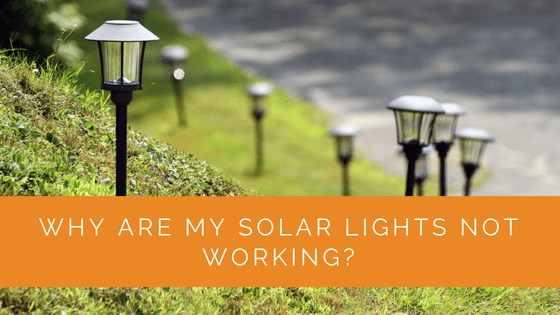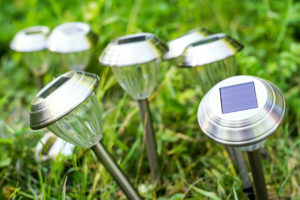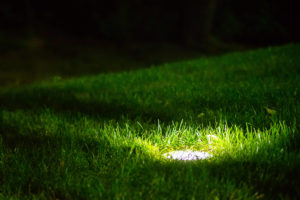Solar lights are a fantastic and eco-friendly solution for outdoor illumination. They’re easy to install, portable, and help reduce your electricity bill. However, like any technology, they can sometimes stop working, leaving you puzzled about the cause. If you're facing issues with your solar lights not functioning properly, you're not alone. This guide will walk you through common reasons why your solar lights might be failing and how to fix them. Whether it's a simple fix or something more complex, we’ve got you covered. Contents Solar lights are a great investment for outdoor spaces. They’re designed to last and offer reliable performance under various weather conditions. But even the best products can face problems over time. If your solar lights have stopped working, there could be several underlying causes. Here are eight common reasons why your solar lights might not be working: If you're new to solar lights, you might not know that many come with a pull tab on the battery. This is to prevent the battery from draining during shipping. Once installed, make sure to remove this tab before using the light. Otherwise, the light won't work at all. One of the most common reasons solar lights fail is because they don’t get enough sunlight. If they’re placed in a shaded area or under a tree, they may not charge properly. Even if they're not directly under the sun, they still need a few hours of direct light each day to function correctly. The sensor in your solar light detects darkness and turns the light on at night. If the sensor is damaged, the light may not turn on when it should. To test it, cover the sensor with a cloth at night. If the light turns on, the sensor is working. If not, it needs to be replaced. Dirt, dust, and moisture can block sunlight from reaching the solar panel, preventing it from charging. Make sure to clean the panels regularly, especially after heavy rain or during dusty seasons. Also, check for water buildup inside the panel, which can damage internal components. Other artificial lights nearby, such as streetlights or garage lights, can confuse the sensor in your solar light. These lights might make the sensor think it's still daytime, so the solar light won’t turn on. Try moving the solar light away from these sources or adjusting their placement. Over time, the batteries in your solar lights will wear out. Most solar lights use NiMH or lithium-ion batteries, which typically last about three years. If the light isn’t turning on, the battery might be dead. Replace it with a high-quality battery to restore functionality. If the solar panel and battery are working, but the light still doesn’t turn on, the problem might be with the LED bulb. LEDs can fail over time, especially if they’re exposed to harsh weather. Check the bulb and replace it if necessary. Even though solar lights are wired internally, cables can become loose or damaged. If the cables are faulty, the light won’t work. In some cases, you may need to take the light apart or consult a professional to identify and fix the issue. If your solar lights aren’t working, don’t panic. Many issues can be easily resolved with a bit of troubleshooting. Here are some effective ways to fix the problem: Ensure your solar lights are positioned where they can receive at least six hours of direct sunlight daily. Avoid placing them in shaded areas or behind obstacles like trees or buildings. Most solar lights use rechargeable batteries that need to be replaced every few years. If your lights aren’t working, check the batteries and replace them with high-quality NiMH or Li-ion batteries. If the sensor is faulty, it may not detect darkness, so the light won’t turn on. You can replace the sensor with a new one or contact the manufacturer for assistance. Keep your solar panels clean to ensure maximum sunlight absorption. Use a soft cloth and soapy water to wipe them down periodically, especially after heavy rain or dust storms. Check your solar panels regularly to see if they’re being blocked by shadows. Trees, buildings, or other structures can cast shadows that reduce the amount of sunlight the panels receive. Never place your solar lights behind windows or glass panels. Glass can block sunlight, reducing the efficiency of the solar panels. Always position your lights in an open, sunny spot. A homeowner in a suburban area installed solar lights around their garden and pathway. Initially, the lights worked well, providing energy-efficient illumination without increasing their electricity bill. However, over time, the lights began to malfunction, especially during the winter months. The goal was to identify and resolve the issues causing the solar lights to stop working. A solar lighting expert was consulted to assess the setup and recommend solutions. Initial Assessment: Maintenance Plan: After implementing the fixes, the solar lights functioned efficiently, providing consistent illumination throughout the night. The homeowner was satisfied with the improved performance and continued to enjoy the benefits of solar lighting. This case study highlights the importance of proper installation, regular maintenance, and timely repairs for solar lights. By addressing common issues like insufficient sunlight, dirty panels, and faulty sensors, homeowners can ensure their solar lighting systems work reliably and efficiently. Our team of solar experts is here to provide guidance and support for all your solar lighting needs. Whether you're looking to install new lights or troubleshoot existing ones, we’re committed to helping you achieve the best results from your renewable energy investment. One of the most common issues with solar lights not functioning properly is insufficient sunlight exposure. Even a slight shadow from a nearby tree or building can significantly reduce the efficiency of the solar panels, leading to inadequate charging. Regular maintenance and correct positioning are crucial for optimal performance. Solar Energy Specialist Over time, solar light batteries can lose their ability to hold a charge, especially if they haven’t been replaced in a few years. It’s essential to check and replace batteries regularly, preferably with high-quality NiMH or Li-ion options, to maintain the longevity and brightness of the lights. Renewable Energy Consultant Sensor malfunctions can cause solar lights to fail to turn on at night. Testing the sensors by covering them or moving the lights to a different location can help diagnose and fix the issue, ensuring the lights function as intended. Electrical Engineer We specialize in solar lighting solutions and are dedicated to helping our customers maximize the benefits of renewable energy. With years of experience and a deep understanding of solar technology, we offer expert advice, installation services, and ongoing support to ensure your solar lights perform at their best. Solar lights are a smart, eco-friendly choice for outdoor lighting. While they are durable and efficient, they can encounter issues over time. Understanding the common causes and knowing how to address them can save you money and frustration. If your solar lights aren’t working, start by checking the basics—battery life, sunlight exposure, and cleanliness. If the problem persists, don’t hesitate to seek professional help. With the right care and attention, your solar lights can continue to illuminate your space for years to come. Solar Panels Network is a leading provider of solar energy solutions, driven by a team of experienced engineers and consultants. With decades of expertise in solar installations and maintenance, we are committed to promoting sustainable energy through innovative and customer-focused solutions. Our content is crafted by industry experts to provide accurate and up-to-date information to help you make informed decisions about your solar energy needs. Home Pressure Washer,High Pressure Car Washer Portable Electric,Portable Electric Garden Wash Cleaner,Portable Electric Hidrolavadora Ningbo Mingou Cleaning Equipment Co., Ltd. , https://www.mingouwash.com
Key Takeaways
8 Common Reasons Why Your Solar Lights Are Not Working

Batteries Feature a Pull Tab
Not Receiving Appropriate Light
The Sensor Has Become Faulty
Covered with Dirt and Water
Proximity to Other Light Sources
Batteries Have Stopped Functioning
LED Bulbs Stop Working
Trouble with Cables

How to Fix the Issue of Solar Light Not Working?
Place It Near Sufficient Light
Replace the Batteries
Change the Sensor
Clean Panels Regularly
Dodge the Shadows
Charging Behind Glass
Case Study: Troubleshooting Solar Lights in a Residential Garden
Background
Project Overview
Implementation
The expert evaluated the solar lights’ placement, condition, and surrounding environment. They identified several key issues and provided practical solutions.
The solar panels were partially shaded by nearby trees and buildings. The solution was to reposition the lights to areas with more direct sunlight.
The panels had accumulated dirt, reducing their efficiency. They were cleaned regularly to maintain optimal performance.
Some batteries had reached the end of their lifespan. They were replaced with high-quality NiMH batteries to improve performance.
Certain sensors were not detecting darkness properly. These were replaced to ensure the lights turned on at night.
A regular maintenance schedule was established to keep the solar lights in good working condition.Results
Summary
Expert Insights on Solar Lights Not Working
Our Expertise in Solar Lights
The Bottom Line
About the Author